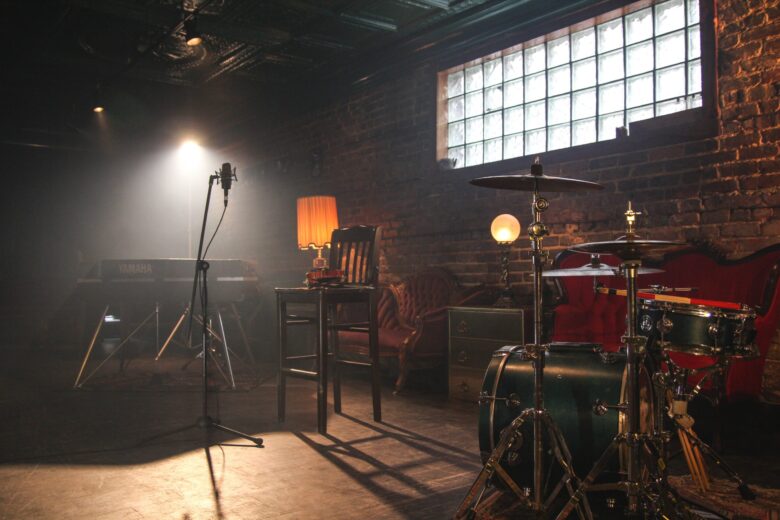Warning: exif_imagetype(): https:// wrapper is disabled in the server configuration by allow_url_fopen=0 in /home/vividprod/public_html/rh/wp-includes/functions.php on line 3332
Warning: exif_imagetype(https://rh.productionserver.co.uk/wp-content/uploads/2023/07/john-matychuk-gUK3lA3K7Yo-unsplash-scaled.jpg): Failed to open stream: no suitable wrapper could be found in /home/vividprod/public_html/rh/wp-includes/functions.php on line 3332
Warning: file_get_contents(): https:// wrapper is disabled in the server configuration by allow_url_fopen=0 in /home/vividprod/public_html/rh/wp-includes/functions.php on line 3352
Warning: file_get_contents(https://rh.productionserver.co.uk/wp-content/uploads/2023/07/john-matychuk-gUK3lA3K7Yo-unsplash-scaled.jpg): Failed to open stream: no suitable wrapper could be found in /home/vividprod/public_html/rh/wp-includes/functions.php on line 3352


14 July 2023
How to Survive If You’re An Independent Music Venue

From securing nonprofit status to bands buying the actual clubs, anything and everything seems to be on the table for indie live-music operators these days.
It’s understandable. The pandemic nearly killed live music. Shows and tours got canceled. Ticket buyers stopped showing up. Venues lost the all-important food, beverage, and merch sales they rely upon to turn a profit.
Covid’s legacy is fear, a mask mandate, and fear of small spaces. While the Big Boys were OK, Indie venues weren’t so lucky. Its clear they’re looking at a multiyear recovery, not a quick bounce back.
From securing nonprofit status to bands buying the actual clubs, anything and everything seems to be on the table for indie live-music operators these days.
It’s understandable. The pandemic nearly killed live music. Shows and tours got canceled. Ticket buyers stopped showing up. Venues lost the all-important food, beverage, and merch sales they rely upon to turn a profit.
Covid’s legacy is fear, a mask mandate, and fear of small spaces. While the Big Boys were OK, Indie venues weren’t so lucky. Its clear they’re looking at a multiyear recovery, not a quick bounce back.
But there are beacons of light in the darkness.
In Boston MA, Club Passim pivoted quickly to livestream shows in 2020, and actually grew its following in the process. The virtual concerts were so popular that the club continues to make livestreams available for almost every in-person gig to this day. “It’s now one of our biggest services that we offer.”
In return for becoming members, fans received perks like early-access ticket sales and reduced or free entry to certain events and series. One could of course adopt a similar model in the metaverse.
Thus, a new pattern has emerged for indie owners: focusing on developing themselves as community spaces. Power in numbers clearly works.
In New Orleans, the members of veteran jam band Galactic purchased the historic Tipitina’s in 2018. They formed a subscription-based record club curated by the band members that continues to be a success.
The past eight months have at last seen some renewed stability in show attendance. But as the no-show trend improved, venues saw an increase in walkups. Relying on walkups is a gamble in a business that runs on tight margins. Blame it on work from home, perhaps. “Some people just got accustomed to the couch.”
But that in itself bodes well for virtual concerts and the opportunities that the Metaverse presents.
Then there’s the matter of safety. While the uneasiness toward indoor shows that came after the covid might be subsiding, the spate of mass shootings in the US has added a whole new level of concern. It’s more and more common to see venues use metal detectors and increased security, previously the territory of arena shows and large-scale festivals.
Predicting the future is a luxury that indie venues mostly can’t afford right now. In this brave new world for live music, anything and everything seems to be on the table. To the above list of initiatives Road Hounds would like to add the opportunity the Music Metaverse offers: Safe, fun and profitable virtual events.
In Boston MA, Club Passim pivoted quickly to livestream shows in 2020, and actually grew its following in the process. The virtual concerts were so popular that the club continues to make livestreams available for almost every in-person gig to this day. “It’s now one of our biggest services that we offer.”
In return for becoming members, fans received perks like early-access ticket sales and reduced or free entry to certain events and series. One could of course adopt a similar model in the metaverse.
Thus, a new pattern has emerged for indie owners: focusing on developing themselves as community spaces. Power in numbers clearly works.
In New Orleans, the members of veteran jam band Galactic purchased the historic Tipitina’s in 2018. They formed a subscription-based record club curated by the band members that continues to be a success.
The past eight months have at last seen some renewed stability in show attendance. But as the no-show trend improved, venues saw an increase in walkups. Relying on walkups is a gamble in a business that runs on tight margins. Blame it on work from home, perhaps. “Some people just got accustomed to the couch.”
But that in itself bodes well for virtual concerts and the opportunities that the Metaverse presents.
Then there’s the matter of safety. While the uneasiness toward indoor shows that came after the covid might be subsiding, the spate of mass shootings in the US has added a whole new level of concern. It’s more and more common to see venues use metal detectors and increased security, previously the territory of arena shows and large-scale festivals.
Predicting the future is a luxury that indie venues mostly can’t afford right now. In this brave new world for live music, anything and everything seems to be on the table. To the above list of initiatives Road Hounds would like to add the opportunity the Music Metaverse offers: Safe, fun and profitable virtual events.